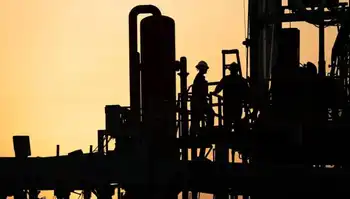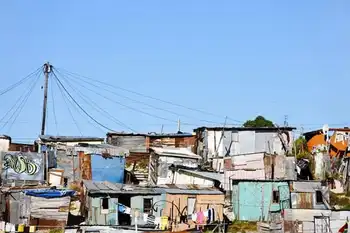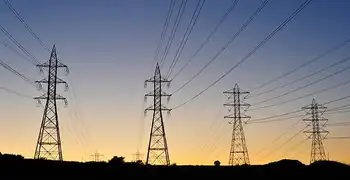GOP Demands Action on Energy Bill
- Raising the spectre of an unstable Middle East oil supply, Senate and House Republicans on Thursday called on Senate Majority Leader Tom Daschle, D-S.D., to allow the body to take up an "energy security" proposal that includes oil drilling in the Arctic National Wildlife Refuge.
The House approved the "Securing America's Future Energy (SAFE) Act of 2001" in early August, and the bill has been on the Senate's calendar since Sept. 4. The bill's most contentious section would require the Interior Secretary to lease oil and gas drilling rights on federal ANWR land in Alaska.
Sens. Rick Santorum, R-Pa.; Frank Murkowksi, R-Alaska; Kay Bailey Hutchinson, R-Texas; Larry Craig, R-Idaho; and George Voinovich, R-Ohio, joined House Majority Whip Tom Delay, R-Texas, in saying further delay on the bill is unconscionable in the post-Sept. 11 world.
"I'm asking Daschle to not make this a partisan issue," Craig said. "He is risking dividing the Senate ... he took (the bill) away from his chairman, refused him to allow the committee to work, and now he is stalling. He's lost the politics of the issue for his party, and he's trying to hold off until there's a time when he can regain it."
Several legislators spoke of the dangers of relying on foreign oil sources during this time of crisis. Others spoke of reports that Osama bin Laden's list of targets includes Saudi Arabia.
Voinovich said a recent trip to the Middle East left him more worried than ever about fundamentalist Islamic movements there. "I don't believe this nation can allow itself to be intimidated by one individual," Voinovich said. "If things go bad in the Middle East, they could bring this nation to its knees by cutting off our oil."
Statistics from the Energy Department's Energy Information Administration, however, present a more stable picture. For the month of July (the latest for which complete numbers are available), Persian Gulf countries made up only 23 percent of U.S. petroleum imports, with Iraq accounting for only 6 percent. The entire Organization of Petroleum Exporting Countries contributed 47 percent of U.S. petroleum imports.
In late September, Energy Secretary Spencer Abraham said U.S. supplies of oil and gasoline remained stable in the wake of the Sept. 11 attacks. At that point, Abraham said OPEC's decision to maintain production levels would support the world economy. Recently, however, he has joined the Bush administration chorus of support for passing the SAFE bill, and Santorum said there's no contradiction in those statements.
"An energy bill that gets passed next week takes months and years to implement and get the kind of stability we're looking for," Santorum said. "When you have the potential for disruption in the Middle East, that short-term assurance could be gone in a very short period of time."
Murkowski said opening up ANWR would provide a clear signal to Middle Eastern countries that the nation is committed to reducing its foreign oil dependency. The move would also give the U.S. financial situation a boost.
"Name me a more significant economic stimulus the country could look at currently," Murkowski said. "It would create thousands of jobs and would result in a payment to the U.S. Treasury of $1.6 billion immediately."
Estimates of the oil available in ANWR go as high as 16 billion barrels, according to the bill's supporters. The U.S. Geological Survey has said the most likely reserves of money-making oil fall between 4 billion and 8 billion barrels, depending on the price of crude oil. The oil would be recovered over 30 to 40 years, starting about 10 years after the bill becomes law.
Environmentalists remain adamantly opposed to any ANWR activity. Adam Kolton, Arctic campaign director for the Alaska Wilderness League, said simple energy-saving measures would create more energy security than drilling.
"It's irresponsible for drilling supporters to take advantage of our national security crisis to advance their partisan agenda," Kolton said in a prepared statement. "Our common goal of fighting terrorism and insuring national security should not be used as an excuse to devastate one of our last true wildernesses."
Related News

Japan to host one of world's largest biomass power plants
TOKYO - Power supplier eRex will build its largest biomass power plant to date in Japan, hoping the facility's scale will provide healthy margins and a means of skipping the government's feed-in tariff program.
The Tokyo-based electric company is in the process of selecting a location, most likely in eastern Japan. It aims to open the plant around 2024 or 2025 following a feasibility study. The facility will cost an estimated 90 billion yen ($812 million) or so, and have an output of 300 megawatts -- enough to supply about 700,000 households. ERex may work with a regional utility or other…




